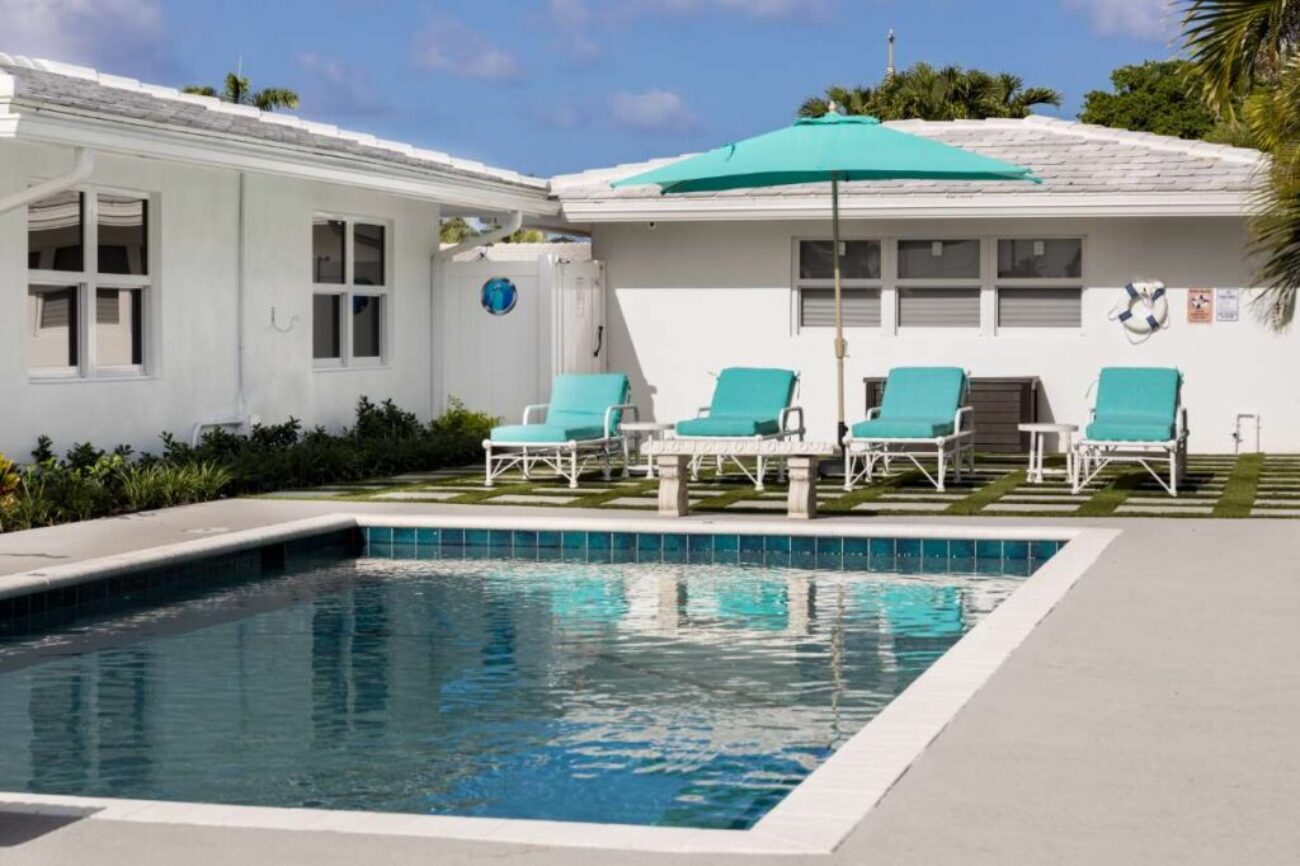Managing Multiple Pool Routes: Tips and Tricks
Discover essential strategies for managing multiple pool routes effectively, ensuring operational efficiency, profitability, and growth in your pool service business.
In the competitive world of the pool maintenance industry, managing multiple pool routes can be both a rewarding and challenging endeavor. As an entrepreneur or an existing pool service owner looking to expand, the ability to effectively juggle multiple routes is crucial for maximizing profitability and ensuring customer satisfaction. This blog post delves into practical tips and tricks for managing those routes efficiently, providing insights that will empower business owners to streamline operations, enhance customer relations, and ultimately thrive in this booming market. Whether you’re considering investing in pool routes for sale or already managing several, these insights will help you navigate the complexities of pool route ownership.
As the pool service industry continues to grow, the demand for efficient pool maintenance solutions is on the rise. Pool routes not only provide a steady stream of revenue but also serve established customer bases, allowing owners to bypass the typical startup hurdles. However, as you expand your service area by taking on multiple routes, the challenges can increase significantly. From scheduling and logistics to customer communication and service quality, effective management becomes vital. In the upcoming sections, we will explore key strategies that can simplify this process and lead to more successful outcomes.
Understanding the Importance of Organization
– Organization is paramount when managing multiple pool routes. Each route comes with its own set of customers, schedules, and service needs, which can quickly become overwhelming without a robust organizational framework. Utilizing digital tools, such as route planning software, can help keep track of appointments, service history, and customer preferences. This technology allows you to map out efficient routes and minimize travel time, saving both fuel and labor costs.
– For instance, software solutions can automatically optimize your route, taking into account factors like traffic patterns and client locations. By reducing travel time, you not only enhance your operational efficiency but also improve the quality of service provided to your customers. A well-organized schedule ensures that no clients are overlooked, enhancing customer satisfaction and retention.
– Consider leveraging mobile applications that allow service technicians to input real-time data on-site, including notes on customer preferences, issues that need addressing, and service completion confirmations. This practice streamlines communication and ensures that everyone involved in the business is on the same page.
Implementing Effective Communication Strategies
– Communication plays a fundamental role in managing multiple pool routes. Keeping clients informed about service schedules, changes, or delays is critical for maintaining trust and satisfaction. Implementing a communication plan with automated reminders can significantly enhance customer interactions. For example, sending out text message reminders or emails before service appointments can reduce no-shows and ensure that customers are prepared for the visit.
– Additionally, utilizing customer management systems (CMS) can help keep track of communication history and preferences. By maintaining diligent records of client interactions, you can personalize your service, making clients feel valued. This tailored approach not only fosters stronger relationships but also encourages referrals, further expanding your client base.
– Furthermore, effective communication with your team is just as important. Regular meetings to discuss schedules, issues, and updates can help ensure that your team is aligned and aware of their responsibilities. Establishing a culture of open communication allows team members to share insights, challenges, and suggestions for improvement, ultimately leading to enhanced service delivery.
Streamlining Operations Through Technology
– Technology can be a game-changer when managing multiple pool routes. Investing in operational tools like scheduling software, GPS tracking, and customer relationship management systems can significantly enhance the efficiency of your operations. These tools enable you to monitor service progress in real-time, ensuring that your team stays on track and that clients receive timely services.
– For instance, GPS tracking can help optimize route efficiency by providing data on travel times and suggesting alternate paths during peak traffic hours. By reducing travel time and fuel costs, you can allocate more resources towards providing exceptional service to your customers.
– Additionally, consider integrating invoicing and payment processing systems into your operations. Automating billing can reduce administrative workload and ensure timely payments, which is essential for maintaining cash flow. Online invoicing can also offer convenience to your customers, allowing them to pay securely and quickly, thus enhancing their overall experience with your service.
Creating a Flexible Workforce
– As your pool service business grows, the ability to adapt your workforce becomes crucial. Hiring additional staff or utilizing subcontractors can provide the flexibility needed to manage increased demand across multiple routes. This approach allows you to scale your operations without sacrificing the quality of service provided.
– Establishing clear protocols and training programs for new hires ensures that all team members uphold your company’s standards. Regular training sessions can help maintain quality and efficiency across all routes, ensuring that regardless of the technician, the customer experience remains consistent.
– Offering flexible scheduling options for your employees can also enhance job satisfaction and reduce turnover. Happy employees are more likely to provide exceptional service, which directly impacts customer satisfaction and retention rates.
Focus on Customer Retention Strategies
– Retaining existing customers is far more cost-effective than acquiring new ones, making customer retention a top priority in managing multiple routes. Engaging with clients through loyalty programs, regular check-ins, or seasonal promotions can foster long-lasting relationships and encourage repeat business.
– Consider implementing a referral program that rewards customers for referring new clients. This strategy not only encourages word-of-mouth marketing but also builds a community around your brand, further enhancing customer loyalty.
– Regularly soliciting feedback through surveys or personal outreach can provide valuable insights into customer satisfaction levels. Addressing any concerns promptly demonstrates your commitment to customer service and can turn potential negative experiences into opportunities for improvement.
Financial Management for Sustainable Growth
– Managing multiple pool routes also entails careful financial oversight. Understanding the financial health of your business is essential for making informed decisions regarding expansion and resource allocation. Implementing accounting software that tracks income and expenses can provide clarity and help you make data-driven decisions.
– As you explore purchasing additional pool routes, ensure that you conduct thorough financial analyses to determine the potential return on investment (ROI). Engaging with a knowledgeable pool business broker can help you identify lucrative opportunities in the market. For example, Pool Routes for Sale offers insights into profitable routes and provides assistance in evaluating their financial viability.
– Additionally, maintaining a cash reserve can buffer against unforeseen expenses, such as equipment repairs or fluctuations in customer demand. Financial stability will allow you to navigate challenges more effectively and seize growth opportunities when they arise.
Geographic Considerations for Route Management
– When managing multiple pool routes, geographic considerations must be taken into account. Understanding the demographics and needs of different neighborhoods can allow you to tailor your services and marketing efforts effectively. For instance, routes in affluent areas may require more premium services, while others may focus on standard maintenance.
– Expanding into new geographic regions, especially in states like Florida and Texas, can also offer significant growth potential. Both states have seen a rise in pool ownership and maintenance demand, presenting opportunities for business growth. As you consider new routes, researching local market trends and customer preferences can help you make informed decisions.
– Furthermore, establishing partnerships with local businesses or participating in community events can enhance your visibility and reputation in new areas. Building relationships with other local service providers can lead to mutual referrals and strengthen your overall market position.
Conclusion
– In conclusion, managing multiple pool routes requires a strategic approach that prioritizes organization, communication, technology utilization, and customer retention. By implementing the tips and tricks discussed in this post, pool service owners can streamline their operations, enhance customer satisfaction, and achieve sustainable growth in the competitive pool maintenance industry.
– The significance of effective route management cannot be overstated, as it directly correlates with profitability and customer loyalty. As the pool maintenance industry continues to evolve, staying ahead of the curve with innovative practices will ensure your business thrives.
– If you’re considering expanding your pool service operations or exploring options for acquiring additional routes, reach out to Tower Business Brokers for expert guidance and support. Start your journey towards effective pool route management today!



